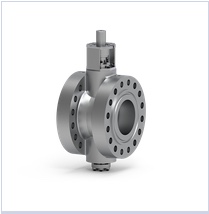Nov-2022
Repsol uses Control Tower solution to manage its integrated business value chain (ERTC)
Repsol S.A. is a global energy and petrochemical company based in Madrid, Spain. It is engaged in worldwide upstream and downstream activities to bring efficient, sustainable, and affordable energy to millions of people.
ASPENTECH
Viewed : 954
Article Summary
Repsol’s chemicals business produces about 4750 kilotons/year of high-value products, including ethylene, propylene, butadiene, benzene, Polyethylene (PE), Polypropylene (PP), Low Density PE, Ethylene Vinyl Acetate (EVA), proplyene oxide (PO)/Styrene Monomer (SM), and propyl glycols.
The company operates three integrated petrochemical complexes, which are managed as a single hub to strategically supply the southern European and Mediterranean markets. These complexes have feedstock flexibility with indigenous and imported feedstocks and can crack up to 35% light feedstock (LPGs). With its sophisticated, integrated business, Repsol was seeking a production and value chain optimisation solution to maximise margins and solve a number of other business challenges.
Envisioning an End-to-End Supply Chain Control Tower
To manage its downstream chemicals business, Repsol envisioned a solution that would provide full economic and customer service trade-offs for planning across the entire chemicals value chain. Although it had used Aspen PIMS™ for many years, the company required a best-in-class, end-to-end solution that would consolidate disparate data, such as production rates, plant constraints, customer demand, prices and costs, inventories, production schedules, and more. Repsol named this projected vision ‘Control Tower’ after the air traffic control tower at an airport, directing operations across the airspace to maximise safety and efficiency.
The project included production and value chain optimisation in order to maximise business margins in economic terms while considering customer service KPIs. Repsol wanted to empower its teams to improve decision-making and minimise response times across the end-to-end value chain. To enable this, it designed a system to create optimal plans and then implement those plans with production and logistics schedules, all integrated within its current IT landscape in SAP/APO.
The Control Tower solution was conceived by balancing two halves of the chemicals business: the margin-driven or commodity side and the demand-driven or specialty side. Maximising value from the integrated business requires planning processes and technology that supports both the margin- and demand-driven sides of the business and balance the objectives of each.
Project Overview
The Repsol Control Tower solution combines aspenONE Supply Chain Management with Aspen PIMS-AO, its current margin optimisation system. Demand-driven optimisation is performed using global demand forecasting with Aspen Collaborative Demand Manager, global supply planning with Aspen Supply Chain Planner, plant-level production scheduling with Aspen Plant Scheduler™, and enhanced collaboration, communication and ‘supply chain social networking’ with Aspen Schedule Explorer. Margin-driven optimisation of Repsol’s refining and chemicals assets is completed with Aspen PIMS. All these capabilities, deployed in a Microsoft Azure private cloud, are integrated with SAP through Aspen Supply Chain Connect™ (ASCC) and Microsoft PowerBI, sharing supply chain data using powerful dashboards.
The scope of Repsol’s Control Tower is expansive, covering bulk chemicals, derivatives, and polymers business units, and includes business processes such as sales and operations planning (integrated business planning), production economics, production planning, production scheduling, product/grade wheel sequencing, demand management, supply/demand balancing, supply network planning, inventory optimisation, and distribution optimisation.
Control Tower Results and Benefits
Overall, the business benefits to Repsol from the Control Tower project were significant, including a 2-4% improvement in the company’s customer service level across the entire supply chain. Customer service level measures the quantity of orders filled on time by a company; an increase generally means greater customer retention and satisfaction.
Another huge benefit for Repsol was increased profit, enabled by three different initiatives implemented as part of the overall project. First, the amount of prime product was increased by reducing transition time on the polymers units by approximately 3-4% due to scheduling optimisation. Second, better decision-making at the crackers resulted from increased visibility into the polymers business demands and constraints.
The Control Tower solution proved to be so impactful that Supply & Demand Chain Executive magazine named it one of its Top Supply Chain Projects for 2022. These awards recognise the most transformative and successful case studies from the past year.
This short article originally appeared in the 2022 ERTC Newspapers, which you can view HERE
Add your rating:
Current Rating: 4

















